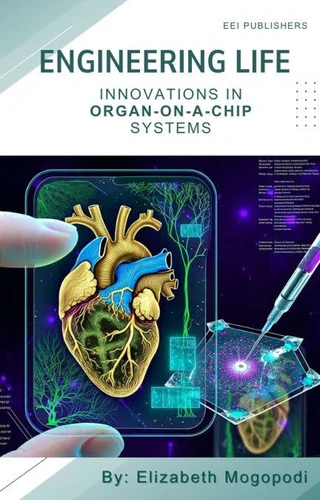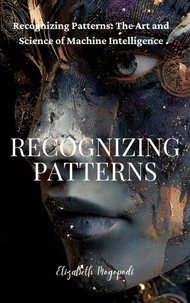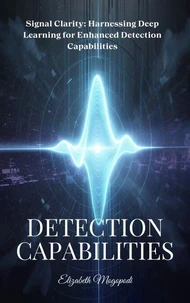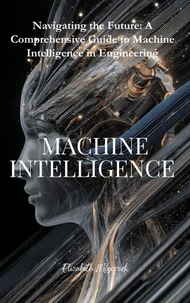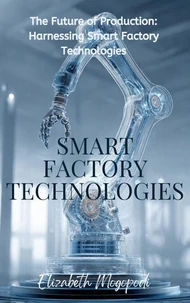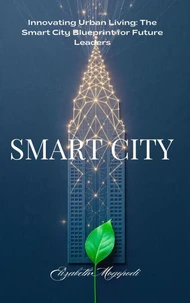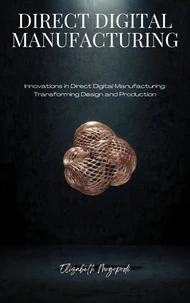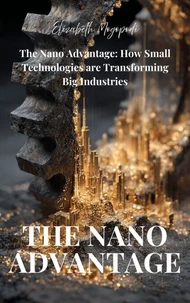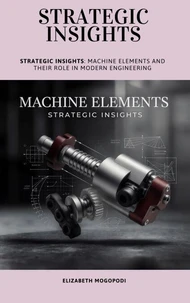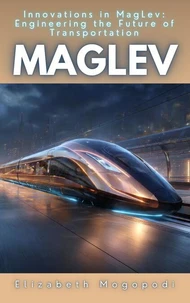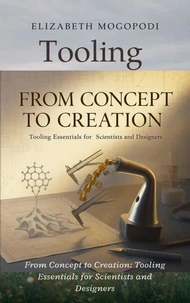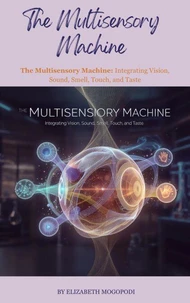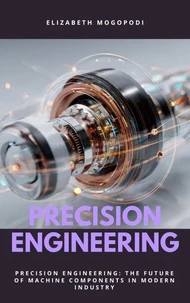Nouveauté
Engineering Life: Innovations in Organ - on - a - Chip Systems. REGENERATIVE MEDICINE
Par :Formats :
Disponible dans votre compte client Decitre ou Furet du Nord dès validation de votre commande. Le format ePub est :
- Compatible avec une lecture sur My Vivlio (smartphone, tablette, ordinateur)
- Compatible avec une lecture sur liseuses Vivlio
- Pour les liseuses autres que Vivlio, vous devez utiliser le logiciel Adobe Digital Edition. Non compatible avec la lecture sur les liseuses Kindle, Remarkable et Sony
 , qui est-ce ?
, qui est-ce ?Notre partenaire de plateforme de lecture numérique où vous retrouverez l'ensemble de vos ebooks gratuitement
Pour en savoir plus sur nos ebooks, consultez notre aide en ligne ici
- FormatePub
- ISBN8232378936
- EAN9798232378936
- Date de parution21/10/2025
- Protection num.pas de protection
- Infos supplémentairesepub
- ÉditeurHamza elmir
Résumé
"Engineering Life: Innovations in Organ-on-a-Chip Systems" is a comprehensive eBook that delves into the exciting world of organ-on-a-chip technology. This innovative field combines microfluidics, biomaterials, and cell biology to create miniature models of human organs, enabling researchers to study disease mechanisms, test new drugs, and develop personalized treatments. With expert insights and in-depth analysis, this eBook explores the latest advancements in organ-on-a-chip systems, including applications in cancer research, neuroscience, and regenerative medicine.
Learn how these systems are transforming the field of biomedical research and paving the way for new breakthroughs in human health. Whether you're a researcher, scientist, or healthcare professional, "Engineering Life" provides a fascinating look at the future of medicine and the potential of organ-on-a-chip technology to revolutionize human health. The future of medicine isn't in Petri dishes-it's in microfluidic labs that mimic the human body.
Engineering Life: Innovations in Organ-on-a-Chip Systems explores the cutting-edge convergence of biology, engineering, and AI to revolutionize drug testing, disease modeling, and personalized healthcare. Why Organ-on-a-Chip Matters- Animal Testing Alternatives: Mimic human physiology with liver-, lung-, or kidney-on-chip models, reducing ethical dilemmas and failed clinical trials.- Precision Medicine: Tailor treatments to genetic profiles using patient-derived cells, accelerating cures for cancer, diabetes, or neurodegeneration.- Faster Drug Development: Test toxicity, efficacy, and interactions in human-like environments, slashing costs and time-to-market.- New Frontiers: Model complex diseases (Alzheimer's, COVID-19) and engineer transplantable tissues.
Breakthrough Technologies Featured- Multi-Organ Chips: Linked heart-liver-kidney systems to study drug metabolism and side effects.- Microfluidic Precision: Mimic blood flow, breathing, or peristalsis for realistic responses.- AI Integration: Predict outcomes, optimize designs, and analyze vast datasets.- 3D Bioprinting: Fabricate vascularized tissues for transplantation.- Ethical & Regulatory Challenges: Navigate patenting, scalability, and safety standards.
Who Should Read This?- Bioengineers & Researchers: Push the boundaries of synthetic biology.- Pharma & Biotech Leaders: Reduce failures, personalize therapies, and comply with regulations.- Clinicians: Translate lab innovations to patient care.- Students: Enter a field reshaping healthcare. This isn't science fiction. Organs-on-chip are already predicting toxicity for chemotherapy drugs, modeling Parkinson's progression, and testing COVID treatments.
The gap between lab and clinic is shrinking. The question isn't if-it's when. Will you lead the shift to human-centric science?
Learn how these systems are transforming the field of biomedical research and paving the way for new breakthroughs in human health. Whether you're a researcher, scientist, or healthcare professional, "Engineering Life" provides a fascinating look at the future of medicine and the potential of organ-on-a-chip technology to revolutionize human health. The future of medicine isn't in Petri dishes-it's in microfluidic labs that mimic the human body.
Engineering Life: Innovations in Organ-on-a-Chip Systems explores the cutting-edge convergence of biology, engineering, and AI to revolutionize drug testing, disease modeling, and personalized healthcare. Why Organ-on-a-Chip Matters- Animal Testing Alternatives: Mimic human physiology with liver-, lung-, or kidney-on-chip models, reducing ethical dilemmas and failed clinical trials.- Precision Medicine: Tailor treatments to genetic profiles using patient-derived cells, accelerating cures for cancer, diabetes, or neurodegeneration.- Faster Drug Development: Test toxicity, efficacy, and interactions in human-like environments, slashing costs and time-to-market.- New Frontiers: Model complex diseases (Alzheimer's, COVID-19) and engineer transplantable tissues.
Breakthrough Technologies Featured- Multi-Organ Chips: Linked heart-liver-kidney systems to study drug metabolism and side effects.- Microfluidic Precision: Mimic blood flow, breathing, or peristalsis for realistic responses.- AI Integration: Predict outcomes, optimize designs, and analyze vast datasets.- 3D Bioprinting: Fabricate vascularized tissues for transplantation.- Ethical & Regulatory Challenges: Navigate patenting, scalability, and safety standards.
Who Should Read This?- Bioengineers & Researchers: Push the boundaries of synthetic biology.- Pharma & Biotech Leaders: Reduce failures, personalize therapies, and comply with regulations.- Clinicians: Translate lab innovations to patient care.- Students: Enter a field reshaping healthcare. This isn't science fiction. Organs-on-chip are already predicting toxicity for chemotherapy drugs, modeling Parkinson's progression, and testing COVID treatments.
The gap between lab and clinic is shrinking. The question isn't if-it's when. Will you lead the shift to human-centric science?
"Engineering Life: Innovations in Organ-on-a-Chip Systems" is a comprehensive eBook that delves into the exciting world of organ-on-a-chip technology. This innovative field combines microfluidics, biomaterials, and cell biology to create miniature models of human organs, enabling researchers to study disease mechanisms, test new drugs, and develop personalized treatments. With expert insights and in-depth analysis, this eBook explores the latest advancements in organ-on-a-chip systems, including applications in cancer research, neuroscience, and regenerative medicine.
Learn how these systems are transforming the field of biomedical research and paving the way for new breakthroughs in human health. Whether you're a researcher, scientist, or healthcare professional, "Engineering Life" provides a fascinating look at the future of medicine and the potential of organ-on-a-chip technology to revolutionize human health. The future of medicine isn't in Petri dishes-it's in microfluidic labs that mimic the human body.
Engineering Life: Innovations in Organ-on-a-Chip Systems explores the cutting-edge convergence of biology, engineering, and AI to revolutionize drug testing, disease modeling, and personalized healthcare. Why Organ-on-a-Chip Matters- Animal Testing Alternatives: Mimic human physiology with liver-, lung-, or kidney-on-chip models, reducing ethical dilemmas and failed clinical trials.- Precision Medicine: Tailor treatments to genetic profiles using patient-derived cells, accelerating cures for cancer, diabetes, or neurodegeneration.- Faster Drug Development: Test toxicity, efficacy, and interactions in human-like environments, slashing costs and time-to-market.- New Frontiers: Model complex diseases (Alzheimer's, COVID-19) and engineer transplantable tissues.
Breakthrough Technologies Featured- Multi-Organ Chips: Linked heart-liver-kidney systems to study drug metabolism and side effects.- Microfluidic Precision: Mimic blood flow, breathing, or peristalsis for realistic responses.- AI Integration: Predict outcomes, optimize designs, and analyze vast datasets.- 3D Bioprinting: Fabricate vascularized tissues for transplantation.- Ethical & Regulatory Challenges: Navigate patenting, scalability, and safety standards.
Who Should Read This?- Bioengineers & Researchers: Push the boundaries of synthetic biology.- Pharma & Biotech Leaders: Reduce failures, personalize therapies, and comply with regulations.- Clinicians: Translate lab innovations to patient care.- Students: Enter a field reshaping healthcare. This isn't science fiction. Organs-on-chip are already predicting toxicity for chemotherapy drugs, modeling Parkinson's progression, and testing COVID treatments.
The gap between lab and clinic is shrinking. The question isn't if-it's when. Will you lead the shift to human-centric science?
Learn how these systems are transforming the field of biomedical research and paving the way for new breakthroughs in human health. Whether you're a researcher, scientist, or healthcare professional, "Engineering Life" provides a fascinating look at the future of medicine and the potential of organ-on-a-chip technology to revolutionize human health. The future of medicine isn't in Petri dishes-it's in microfluidic labs that mimic the human body.
Engineering Life: Innovations in Organ-on-a-Chip Systems explores the cutting-edge convergence of biology, engineering, and AI to revolutionize drug testing, disease modeling, and personalized healthcare. Why Organ-on-a-Chip Matters- Animal Testing Alternatives: Mimic human physiology with liver-, lung-, or kidney-on-chip models, reducing ethical dilemmas and failed clinical trials.- Precision Medicine: Tailor treatments to genetic profiles using patient-derived cells, accelerating cures for cancer, diabetes, or neurodegeneration.- Faster Drug Development: Test toxicity, efficacy, and interactions in human-like environments, slashing costs and time-to-market.- New Frontiers: Model complex diseases (Alzheimer's, COVID-19) and engineer transplantable tissues.
Breakthrough Technologies Featured- Multi-Organ Chips: Linked heart-liver-kidney systems to study drug metabolism and side effects.- Microfluidic Precision: Mimic blood flow, breathing, or peristalsis for realistic responses.- AI Integration: Predict outcomes, optimize designs, and analyze vast datasets.- 3D Bioprinting: Fabricate vascularized tissues for transplantation.- Ethical & Regulatory Challenges: Navigate patenting, scalability, and safety standards.
Who Should Read This?- Bioengineers & Researchers: Push the boundaries of synthetic biology.- Pharma & Biotech Leaders: Reduce failures, personalize therapies, and comply with regulations.- Clinicians: Translate lab innovations to patient care.- Students: Enter a field reshaping healthcare. This isn't science fiction. Organs-on-chip are already predicting toxicity for chemotherapy drugs, modeling Parkinson's progression, and testing COVID treatments.
The gap between lab and clinic is shrinking. The question isn't if-it's when. Will you lead the shift to human-centric science?

